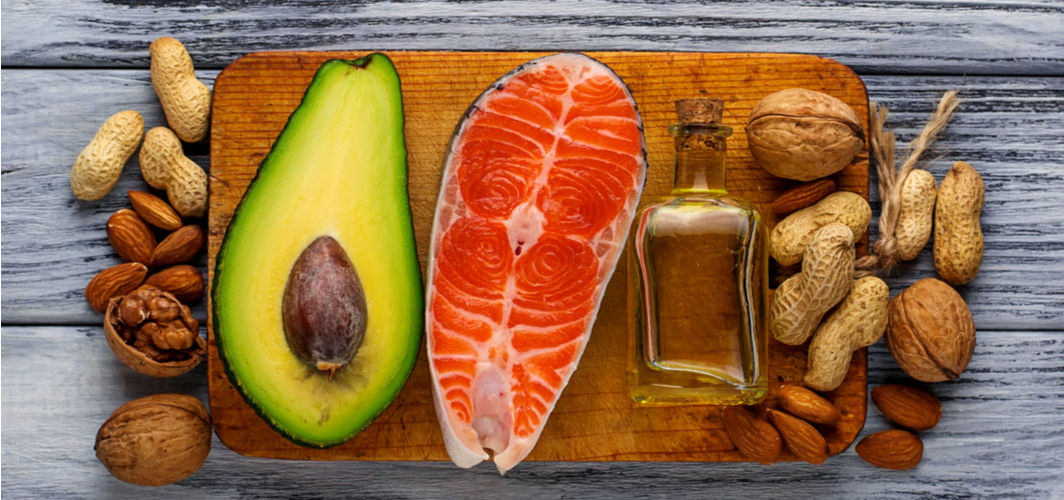The human body relies on certain nutrients to function optimally. While some nutrients are needed in larger quantities, some are needed in moderation. Dietary fat is one such nutrient that is required by the body for growth, energy provision, and other biological functions.Nevertheless, not all types of dietary fats are equal. While some dietary fats offer certain health benefits when consumed in moderation, others have been linked to negative health effects. Knowing the difference can help people make the right choice when it comes to determining which dietary fats to avoid and which to consume in moderation.
Importance of dietary fats
A lot of people think fats are ‘bad’ for health. However, this is not true. Being a macronutrient, fats are an indispensable component of a balanced diet. Some of the reasons why fats should be included in the diet:
- Fats are a source of energy
- Fats contain essential fatty acids that human bodies cannot produce on their own
- Fats are a component of cell walls
- Fats are needed to absorb fat-soluble vitamins: A, D, E, and K
- Fats protect organs and insulate bodies
When ‘right’ types of fats are consumed in moderation, they can actually offer protective health benefits.
Types of dietary fats
Broadly, dietary fats are classified into two major types: unhealthy fats and healthy fats
-
Unhealthy fats
The main types of unhealthy dietary fats are:
Saturated fats are considered unhealthy as they can raise low-density lipoprotein (LDL or ‘bad’) cholesterol, which are associated with an increased risk of cardiovascular disease. These kinds of fats are usually solid and waxy at room temperature. Saturated fats are generally found in animal sources of foods such as whole-fat dairy products (cheese, butter and cream) and red meats. They are also found in fried foods, pre-packaged and processed foods, and oils such as palm oil and palm kernel oil.
Trans fats, also known are hydrogenated vegetable oils, are found naturally in some foods such as dairy products and meats. However, most trans fats are produced artificially by a food processing technique called hydrogenation or partial hydrogenation. Through this technique, a liquid fat (usually a vegetable oil) is converted into solid fat. Hydrogenated oils are used as ingredients by manufacturers of processed foods to increase the consistency of foods and increase their shelf life. Most convenience foods such as cookies, cakes, candies, snack foods, french fries, and other baked foods, contain trans fats.
According to healthcare experts, there are no safe levels to consume trans fats every day. Trans fats are known to increase LDL (bad) cholesterol and triglyceride levels. Trans fats are also associated with a greater risk of inflammation in the body, which can lead to adverse health effects such as diabetes, heart disease, and stroke.
-
Healthy fats
Dietary fats that are widely considered to be healthy include:
Monounsaturated fats are a type of unsaturated fats that are found in a variety of plant-based foods such as avocados, olives, most nuts (except walnuts), nut butter, and olive, peanut, and canola (rapeseed) oils. These fats are found in a liquid state and solid state at room temperature and refrigeration temperature, respectively.
According to available scientific evidence, replacing foods rich in saturated fats with those high in monounsaturated fats can positively improve blood cholesterol levels. Intake of foods that contain monounsaturated fats can also decrease the risk of type 2 diabetes and heart disease.
Polyunsaturated fats are another type of healthy fats that are mostly found in plant-based foods like flax seeds, chia seeds, walnuts, and other types of nuts. They are also obtained from oils like soybean oil, corn oil, sunflower oil, sesame oil, cottonseed oil, and flax oil. According to studies, intake of foods rich in polyunsaturated fats instead of those rich in saturated fats can improve blood cholesterol levels and heart health. A diet rich in polyunsaturated foods can also decrease the risk of type 2 diabetes
One major sub-type of polyunsaturated fats are omega-3 fats. These fats are associated with protective health benefits against heart disease. Consumption of foods rich in omega-3 fats can lower blood pressure, reduced triglyceride levels, protect against irregular heartbeats, and reduce the likelihood of coronary artery disease and heart attack.
Fish such as salmon, herring, sardines, and mackerel are the richest source of omega-3 fatty acids. Other good sources of omega-3 fats include chia seeds, flaxseeds, walnuts, canola, and soybean oils.
Association between fat intake and body weight
It is indeed true that a regular intake of a high-fat diet can cause weight gain. This can be attributed to the fact that dietary fat offers nearly twice as many calories per gram as other macronutrients such as proteins and carbs.
For people who are overweight or obese, it is important to lose weight to avoid health complications. Excess body weight is linked to a higher risk of conditions such as diabetes, high blood pressure, certain types of cancer, and cardiovascular diseases. It is recommended that overweight and obese people monitor their intake of dietary fats. Such people should severely limit the consumption of foods rich in saturated fats and trans fats.
What are the recommendations for fat intake?
Because some fats are healthy and others are not, it is important to know which ones to consume and in what quantities.
For adults, the recommended dietary allowance (DRA) for dietary fats is 20% to 35% of total calories consumed in a day. For a person who consumes 2,000 calories a day, this translates to about 44 grams to 77 grams of fat daily.
- Saturated fat: less than 10%
- Trans fat: 0%
- Monounsaturated fat: 15% to 20%
- Polyunsaturated fat: 5% to 10%
- Cholesterol: not more than 300 mg
Tips for including fats in the diet
- Read the nutrition labels of packaged and processed foods carefully. Select foods that contain fewer saturated fats and no trans fats/partially hydrogenated fats.
- Select low-fat sources of protein such as dried beans, peas, tofu, egg whites, fish, and lean meats.
- Opt for foods that be cooked without added butter, gravy, or high-fat sauces. Avoid frying foods.
- Use oil instead of solid fats for cooking. Choose healthy cooking oils such as canola oil or olive oil.
- Sprinkle herbs, spices, and lemon juice on cooked vegetables instead of butter, cheese, or cream-based sauces.
- Reduce intake of ice cream, pastries, and cakes. Opt for healthy, low-sugar, and low-fat alternatives.
An important note
All types of dietary fats, including the healthy ones, are high in calories. It is essential to regulate the intake of calories. Foods rich in monounsaturated and polyunsaturated fats should be used consumed in moderation, not in addition to foods high in saturated fats.
Some people try to limit their intake of fats by eating processed foods that are labelled low-fat or fat-free. However, this is a flawed and unhealthy strategy. Naturally, low-fat foods such as fruits, veggies, legumes, and whole grains should be consumed as part of a balanced diet.
Talk to a cardiologist if you have any questions related to heart health.







